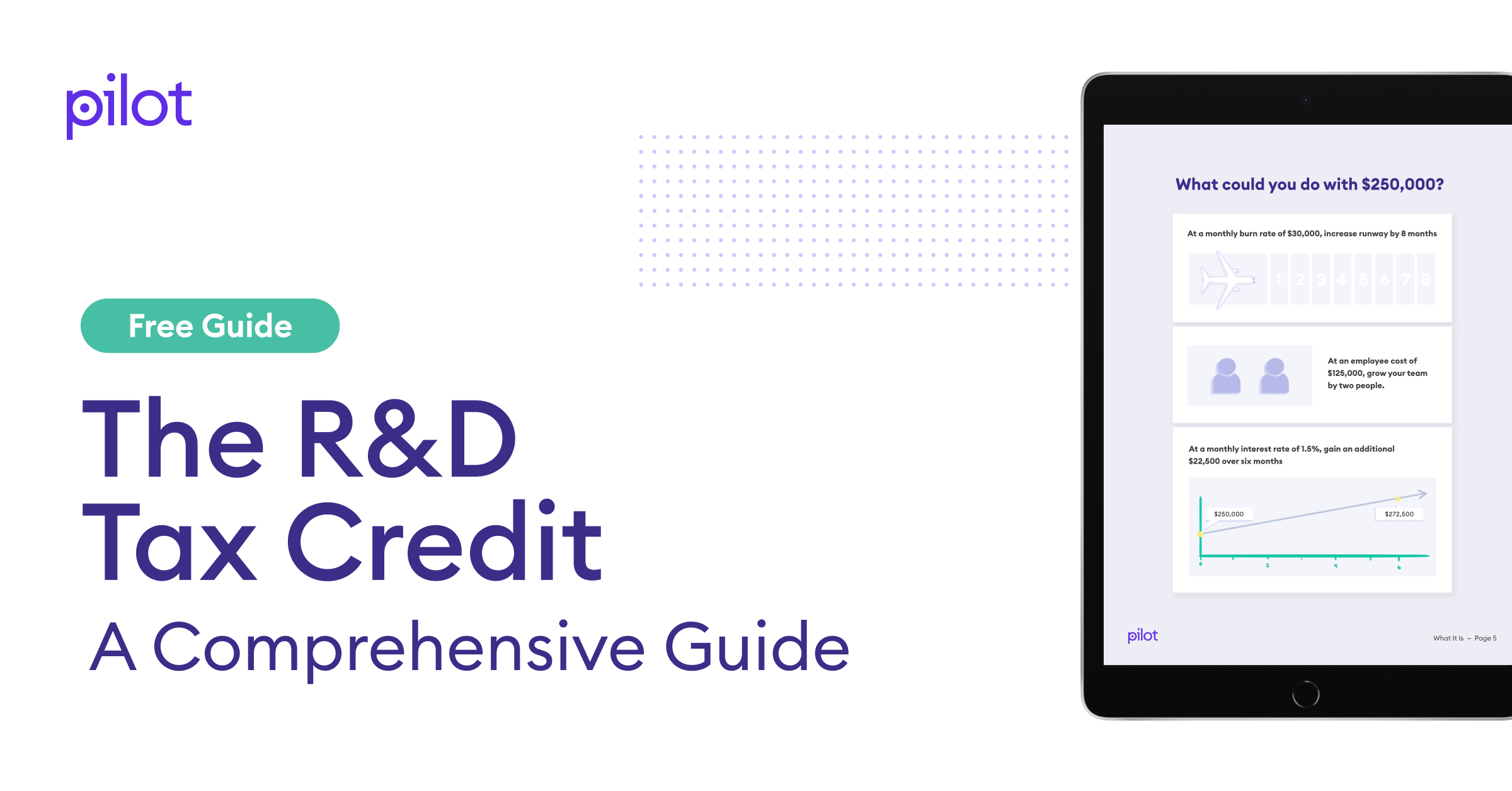Your Startup Tax Questions Answered
A confirmation email has been sent to your email.

If you’re a founder wondering how to file your taxes for remote employees or need a better understanding of how to claim the R&D tax credit, we’ve got you covered! Watch as Pilot’s David Kelm, Business Tax Services Manager, and Justin Wiguna, Product Manager of Tax, address common startup tax questions and more. Find out what you need to know to ensure your business is fully prepared for the upcoming tax season.
Below is a sneak peek of three startup tax questions that will be covered in more depth during the webinar.
How do remote employees affect a company’s tax filing obligations?
Hiring remote employees can certainly affect your state income tax obligations. Once a remote employee begins working in a new state, a company generally begins to file payroll tax returns. While it may not be common, states have the potential to demand that a company also file income tax returns in that state as they are filing payroll tax returns in that state and have a presence in the state. Unfortunately, every state has its own set of rules, but some states employ a bright-line nexus test where if payroll exceeds a certain amount in a year, a company is required to file an income tax return in that state.
If company contractors lived outside of the United States and earned more than $600 in 2022, are they obligated to complete a Form W9? Also, should the company send them a Form 1099?
International contractors are not required to complete a Form W9, so Form 1099 filing is not required. Generally, the income of the international contractor should be withheld for federal tax purposes at 30% unless the contractor is claiming US tax treaty benefits. If the contractor wants these benefits, they should fill out Form W-8BEN and return the completed Form to the company. While Form W-8BEN is not required to be filed with the IRS, the company must keep any Form W8s in its records if the IRS requests Form W8 from the company.
Is there more information available about the Research & Development (R&D) legislation change?
Before the 2022 tax year, companies could expense 100% of their R&D expenses in the year they were incurred. Starting in the 2022 tax year, companies must capitalize on their R&D expenses and amortize them over five years. Section 174 (R&D) expenses include the following direct and indirect expenses:
- Wages paid to employees working on research and development activities
- Wages paid to contractors working on research and development activities
- Expenses incurred related to research and development supplies
- Overhead associated with research and development activities such as R&D facilities costs and R&D-related depreciation
This law change is significant as companies that have historically been in taxable loss positions could be triggered into a taxable income position if the R&D spend is high enough for a given tax year. However, there is the potential for this new law change to be repealed.
Interested in learning more? Register for the webinar today!
A confirmation email has been sent to your email.






